Have you ever wanted to immerse yourself in the wonders of Southeast Asia? Our ultimate guide for long stays in Asia will have you travelling across four countries, soaking up the culture, sights and sounds of this incredible part of the world.

Are Long Stays in Asia For You?
Have you ever dreamed of a long stay in Asia? If you love travel, you will find that southeast Asia has a fascinating mix of cultures and a cost of living that will stretch your travel dollar further.
We spent seven months travelling throughout Thailand, Vietnam, Cambodia and Malaysia. In that time, we based ourselves in the cities of Chiang Mai Thailand, Da Nang Vietnam, Phnom Penh Cambodia and Penang Malaysia.
Visiting Asia on a long stay allowed us to slow down and experience life within a different culture without breaking the bank.

Benefits of Long Stay Travel
Thailand, Vietnam, Cambodia and Malaysia have visa exemptions or tourist visas that allow for stays up to a month or longer. This is a fabulous opportunity to delve into the culture and history of these four vastly different countries.
Southeast Asia’s low cost of living makes it the perfect place for slow travel. Depending on your travel style, accommodation and food costs may be minimal compared to the West. The proximity to each country is also a benefit with buses, trains and flights being affordable for any budget.
Long stays in Asia are ideal for learning about a variety of customs and cuisines. Here you can discover histories rooted in both triumph and tragedy. Have fun exploring new horizons and enjoy the nightlife in these incredible cities.
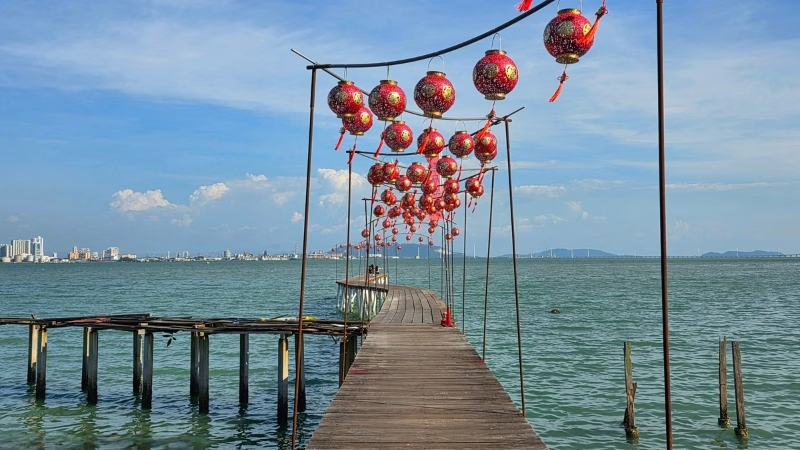
Long Stays in Asia – What to See
During our travels to Malaysia, Thailand, Vietnam and Cambodia we had the opportunity to tick off a wide collection of UNESCO World Heritage Sites and bucket list destinations.
In Malaysia we saw the Batu Caves near Kuala Lumpur and spent time in the charming UNESCO World Heritage sites of Melaka and George Town in Penang.
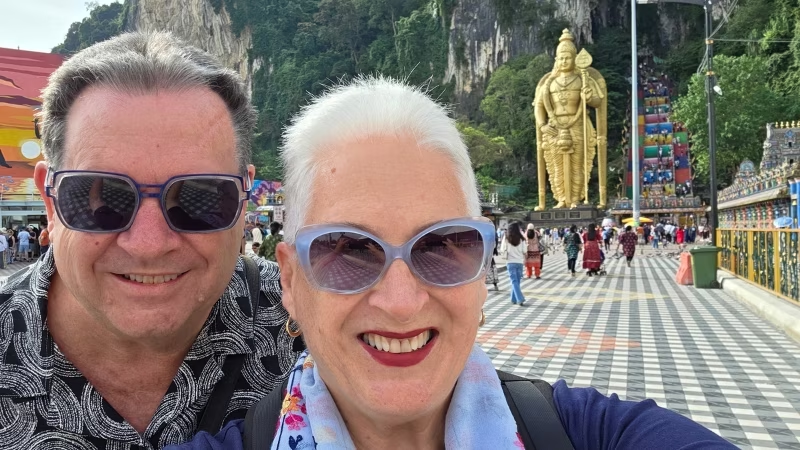
In Thailand we enjoyed the river and big city vibe of Bangkok before setting off to one of our favourite places in the world, the city of Chiang Mai. We explored the White Temple, Blue Temple and Black House in Chiang Rai and enjoyed the rural mountain scenery and laidback lifestyle of Pai.
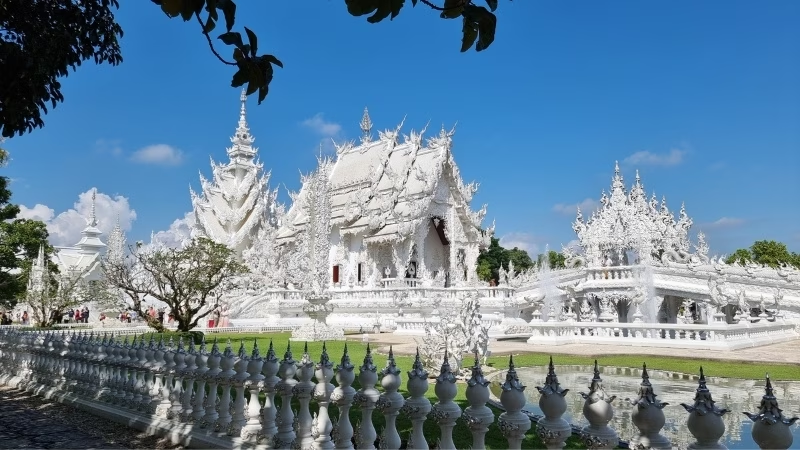
In Vietnam we explored the “36 Streets” of Hanoi and admired the embroidery and lifestyle of the Red Dao hill tribe women in Sa Pa. We strolled along the golden hued streets of Hoi An Ancient Town and watched the sun come up over the Golden Hand Bridge at Ba Na Hills near Da Nang.

In Cambodia we discovered the tragic history of the Killing Fields and Tuol Sleng Genocide Museum in Phnom Penh. We watched the sun rise over the ancient wonder of Angkor Wat, a UNESCO World Heritage Site near the city of Siem Reap.
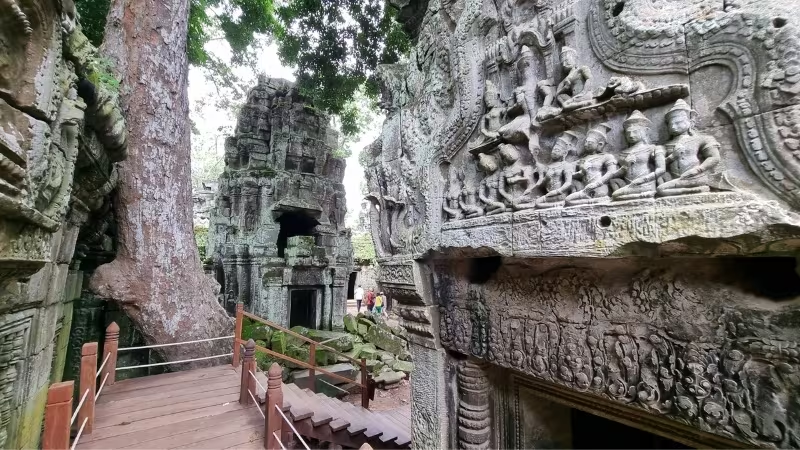
Cost of Living in Asia
The cost of living in Malaysia, Thailand, Vietnam, and Cambodia is significantly lower than in most Western countries. Affordable accommodation, food, and transport make these destinations ideal for anyone looking to extend their travels through Asia.
As we explored each country, we experienced not only diverse cultures but also saw noticeable differences in living costs. Overall, Malaysia and to a lesser degree, Thailand had the highest cost of living of the four. This was largely due to their more developed infrastructure, which also made long-term stays easier to manage.
For us, Vietnam offered better value for money than Cambodia, mainly because we had to convert Australian Dollars into US Dollars in Cambodia, which added extra costs. However, if you are coming from the USA, you may find Cambodia more affordable than Vietnam for extended stays.
Long Term Travel Accommodation
The cost of accommodation in Malaysia, Thailand, Vietnam, and Cambodia will depend on your preferred mode of accommodation, location and length of stay.
During our long stay in Asia, we mixed up accommodation styles with an assortment of budget guesthouses, luxury hotels and apartments. This gave us a good overview the accommodation available in each country.
If you enjoy staying in luxury hotels you will be pleasantly surprised as the prices are often a fraction of the cost of luxury hotels in your home country. If you are a member of a hotel loyalty program like us, this is a fantastic way to accumulate loyalty points quicker.
Memorable luxury hotels are the Hotel des Arts Saigon – MGallery Collection in Ho Chi Minh City Vietnam, 137 Pillars Suites & Residences Bangkok Thailand, Novotel Phnom Penh BKK 1 Hotel in Phnom Penh Cambodia and Novotel Kuala Lumpur City Centre in Malaysia.
Apartments and Long-Term Stays
During our Long Stays in Asia, we based ourselves in Chiang Mai Thailand, Penang Malaysia, Da Nang, Vietnam and Phnom Penh Cambodia. Here we found that renting an apartment is one of the best ways to immerse yourself in local life.
You will find a good range of apartments with kitchenette, a dining area, sitting room and bedroom. Having a kitchen is ideal for cooking breakfast, reheating street food or enjoying a quiet meal at home after a busy day of sightseeing.
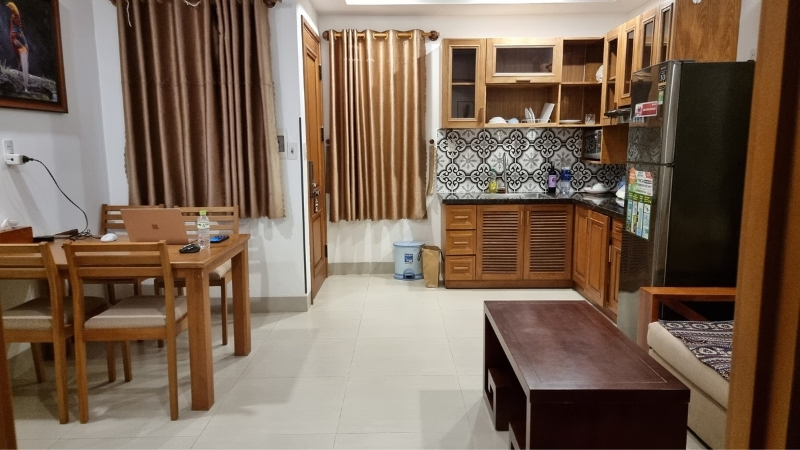
Renting Apartments in Asia
You can book long-stay apartments through popular hotel booking websites, these often include utilities such as water, electricity, and internet in the listed price. This option is ideal for first-time visitors who want to know upfront costs before they leave home.
Alternatively, you can deal directly with a local real estate or visit apartment buildings in person to negotiate a monthly rate. Using this method, you may need to pay a refundable security deposit and cover utilities separately, these costs are affordable depending on your usage.
Food Scene in Asia
When you travel to Malaysia, Thailand, Vietnam, and Cambodia you are in for a real treat when it comes to their food scenes. Here you will find a vibrant mix of flavours that were shaped by centuries of history and cultural diversity.
Across all four countries, street food is king, the perfect place to try cheap authentic dishes and experienced local culture at its best.
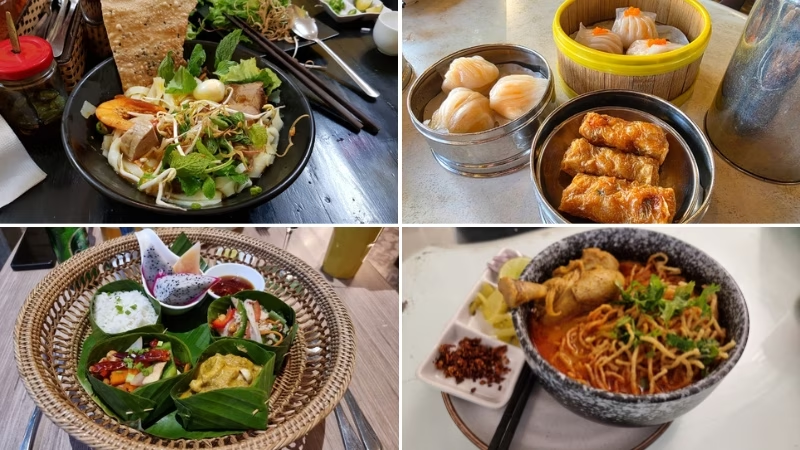
In Malaysia, sample a mouthwatering variety of Malay, Chinese, and Indian dishes. Sit down at your local hawker centre and try Malaysian signature dishes such as nasi lemak, laksa, or char kway teow. Savour each dish knowing they are a fusion of Malay, Chinese, and Indian traditions.
Thailand is renowned for its bold flavours influenced by a balance of sweet, salty, sour and spicy. Enjoy well known dishes like pad Thai and pad krapow or try regional specialties such as Khao Soi from northern Thailand.
Vietnam offers a fresher, lighter taste, enhanced by a mountain of fragrant herbs, crisp vegetables and dipping sauces. Vietnamese dishes such as pho, banh mi, and bun cha are world famous. Try the rich flavours of regional dishes such as mi quang and cao lau on a trip to Da Nang and Hoi An.
Though Cambodian food is less internationally known, it is equally delicious. Fish amok and beef lok lak are both stapples of Khmer cuisine.
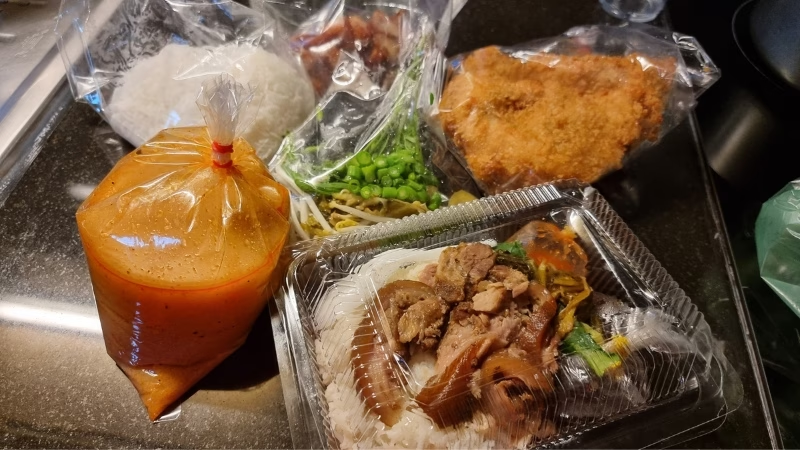
Shopping in Asia
Shopping in Southeast Asia offers a heady mix of colourful street markets, modern shopping malls, and interesting local shops. Most major cities have large shopping malls which contain reasonably priced food courts and supermarkets for your daily needs.
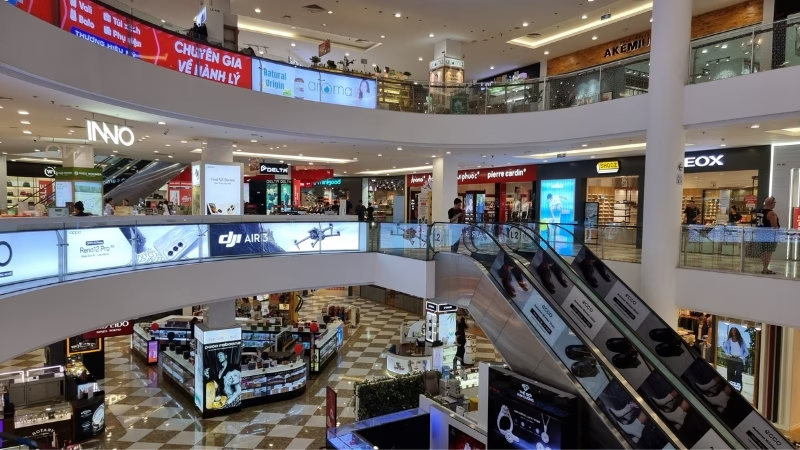
Malaysia has everything from high-end malls in Kuala Lumpur to vibrant night markets where you can bargain for clothes, electronics, and local snacks.
Thailand is famous for its shopping scene. Bangkok alone is home to massive malls such as Terminal 21 and Siam Paragon. Take time to explore an endless collection of street markets selling fashion, souvenirs, and handmade goods.
In Vietnam, shopping tends to lean towards local craftsmanship. Lacquerware, silk, and tailor-made clothing are common finds, especially in cities like Hoi An and Hanoi.
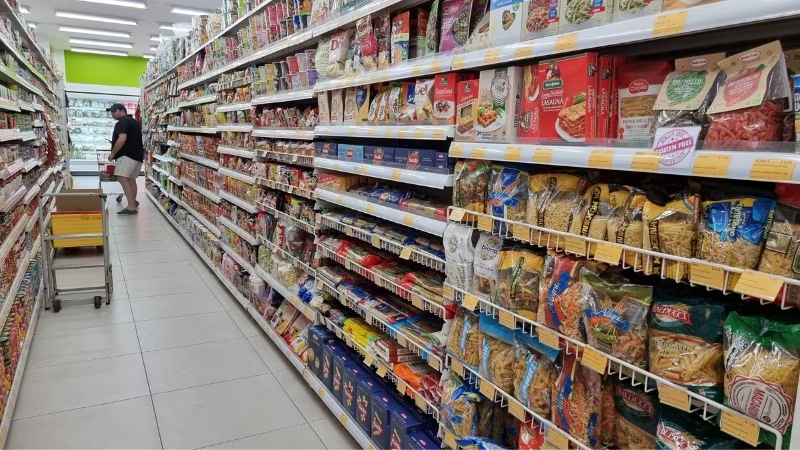
Cambodia has a more relaxed shopping vibe, with markets in Phnom Penh and Siem Reap selling handmade jewellery, scarves, and art, often supporting local artisans and social enterprises.

For me visiting the hustle and bustle of the markets is one of my favourite things. Interacting with the locals and experiencing day to day life always makes me feel connected to the country.
Transport in Asia
Southeast Asia has a fabulous range of transport options including flights, trains, buses, and several local budget friendly options. Grab taxi is popular for door-to-door transport in major cities within all four countries.
Both Malaysia and Thailand are well covered with flights, trains and buses for domestic travel within the country. Both tuk tuk and songthaew are a fun and economical way to travel around the city in Thailand.
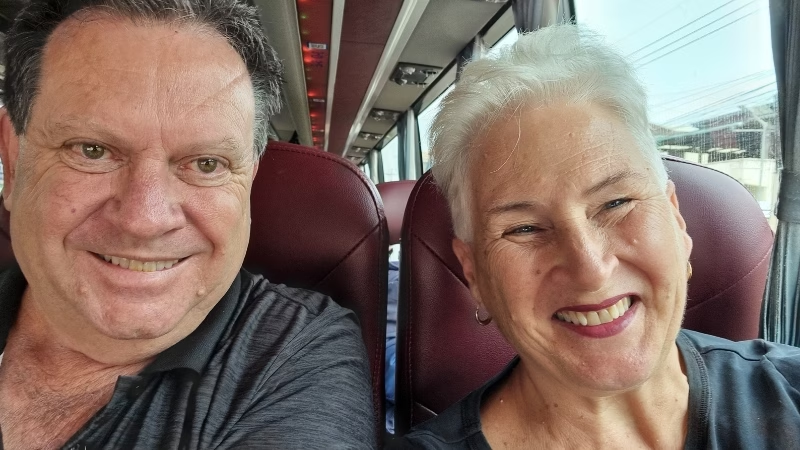
Vietnam also has good transport links running between major cities. The choice is only limited to budget with a great selection of domestic flights, overnight trains, and buses on offer.
Cambodia’s transport options are a little more basic but there is still a good range of tuk tuks, buses, and shared vans to take you around the city and beyond. Domestic flights connect key destinations such as Phnom Penh and Siem Reap.
Click here for Asia transport options including buses
Weather in Asia
Malaysia, Thailand, Vietnam and Cambodia all have a hot, humid tropical climate and monsoon season. Typically, the best time to visit the region is between November and February.
Both Malaysia and southern Thailand experience a monsoon season that varies from the east and west coast. Monsoon season on the east coast is from around November to February, and west coast from May to October. In the north of Thailand, the weather cools to a comfortable climate between December and February.
Vietnam’s weather changes from north to south. In the south the weather is hot and tropical year-round with a rainy season from May to October. Northern Vietnam experiences cooler winters between December and February. In some places such as Sa Pa there may even be snow during this period.
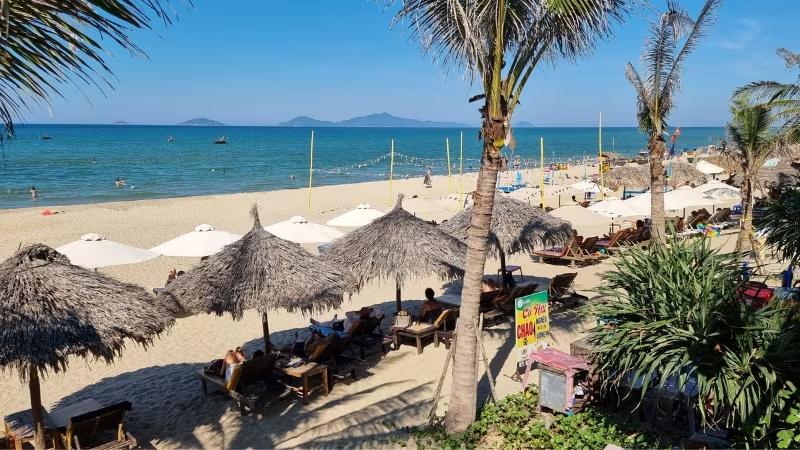
Cambodia has two main seasons the wet and dry season. Cambodia’s dry season is from November to April, and the wet season is from May to October. The best time to visit Cambodia is from November to February.
Will You Need a Visa?
The length of long stays in Asia will depend on the entry requirement into your chosen Asian destination from your home country. Visa requirements can change, and it is important to check the latest visa information before booking your trip.
Click here for more visa information
Currency in Southeast Asia
Each country in Southeast Asia has its own currency, which is important to know when planning your trip to the region.
- Malaysia – Malaysian Ringgit (MYR)
- Thailand – Thai Baht (THB)
- Vietnam – Vietnamese Dong (VND)
- Cambodia – US Dollar (USD) & Cambodian Riel (KHR)
In Cambodia the US Dollar is the preferred currency but you will most likely receive change in Cambodian Riel. Keep in mind that US Dollars will only be accepted if they are in pristine condition.
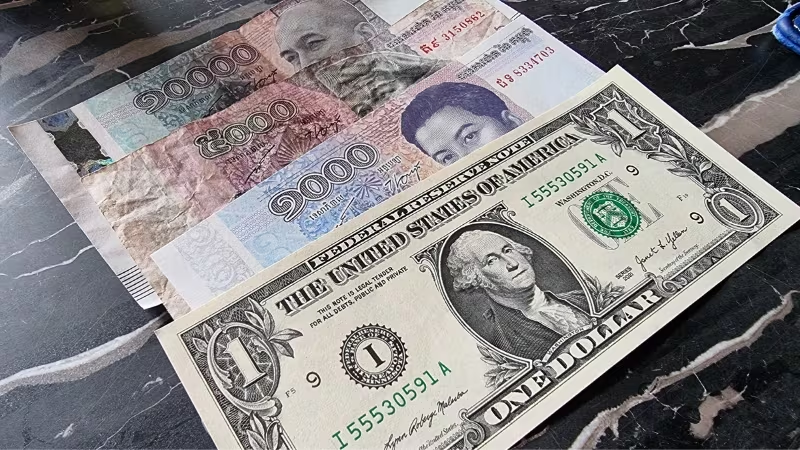
You will find that cash is king across all four countries especially with small businesses, local restaurants, markets and street stalls. Modern shopping malls, higher end hotels and restaurants, are more likely to accept credit cards.
When you are visiting these regions of Southeast Asia make sure you have access to these currencies and do not rely on credit card for payment.
During our long stay travels in Southeast Asia we use Wise Card to keep money conversion costs to a minimum.
TIP
Find more info about a Wise card and other travel savings
Last Words on Long Stays in Asia
After spending seven months drifting around Thailand, Vietnam, Cambodia, and Malaysia, we came away with a horde of unforgettable memories. We gained a sense of connection not only with the destinations but the people we met along the way.
Long stays in Asia give you the freedom to slow down and appreciate the incredible food, culture, history, and everyday life that short trips often miss.
With an affordable cost of living, friendly locals, and easy travel between countries, Southeast Asia is perfect for anyone looking for an extended adventure without breaking the bank. If you have ever dreamed of travelling deeper and longer, this region is an ideal place to start.
Have you had long stays in Asia? What country did you like best? Feel free to leave a comment, we would love to hear from you.
